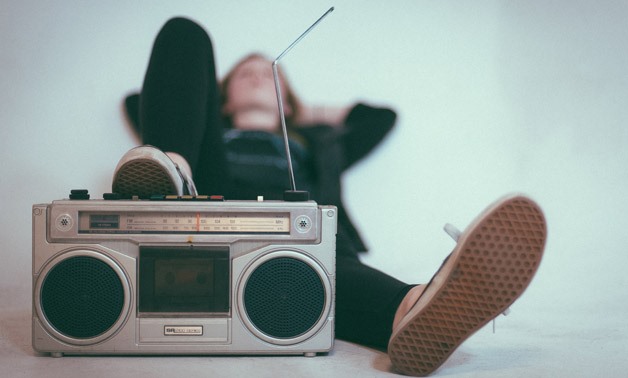
Eric Nopanen. Courtesy: Unsplash
LONDON - 18 July 2017: Editor of Disability United, Fleur Perry, talks about the importance of music in making voices heard and creating change, and reminisces about the songs from the height of the Disability Rights Movement.
I feel I must apologize to fans of William Shakespeare for the title of my article, but perhaps I’ll be forgiven by the end. I must also apologize for leaving out some fantastic songs and performances in an effort to keep this ‘before the watershed’ column fairly light-hearted.
Music is important. I never dive into a dull piece of work without something with a fast-paced beat to keep me going. I never write about trains without absent-mindedly humming; “underground, over ground, wombling free…” and I never debate the lack of accessible housing without thinking; “our house, in the middle of our street!”
There are some thoughts, feeling and ideas that music communicates more powerfully than words alone, and the music of the disabled people’s movement is deservedly a genre in itself. There are hints of it in punk, blues, and folk, all blended together with beer and irony to give a snapshot of the time the artist was writing in and what disability rights were like back then.
A few weeks ago, I found myself trying to explain the history of the disabled people’s civil rights movement in under five minutes to a non-disabled person who’d never heard of it. The words ‘culture shock’ are the best fit for the reaction of my associate/victim.
As I am of the wrong generation to have been there at the protests that brought about the Disability Discrimination Act 1995, I felt my third-hand accounts were not really up to the task. So I decided to send a few links to a bit of Johnny Crescendo for good measure. For those who have not heard his name before, he’s a singer/songwriter whose focus was disability rights.
To my horror, almost all Johnny Crescendo songs have been removed from YouTube. You can still buy an album online, but that isn’t very shareable. There’s a crackly version of Choices and Rights still up there, with images of protests in America that look not too dissimilar to recent Medicaid protests as Trump threatens to take away the healthcare insurance. Take a look for yourself:
But where’s We Want What You’ve Got? Where’s Don’t Lock Me In? Their titles alone are more effective than me rambling on about commissioning group policies and budget cuts, so imagine how effective the rest of the song is. And be prepared for the ending of The Ballad of Roy and Julie, a song about a young couple whose relationship is torn apart by social stigma.
Instead, I sent a video of photos from a 1992 telethon protest outside the ITV Studios in London, which has a slightly melancholy backing track called Light the Fire. It talks about education rights, living in your own home, breaking the mould and demanding equality (apologies for the title!).
As a genre, it seems to be undergoing a bit of resurgence. From protesters demanding their right to ‘turn up and go’ at railway stations to the tune of YMCA earlier this year, to more intricate pieces, such as Karen Sheader’s Not In Our Lifetime. Music is still making people think about the world around us, and what it could be.
There’s an odd note in a lot of these songs that makes them quite hard to listen to. It’s a sense that this is the way things are and more or less always have been and that this is the way things always will be. I do not believe that. Progress is possible, has happened and will happen. Yes, the UN says we’re going backwards at the moment, but does that mean we won’t go forwards?
I don’t think so. If music be the food of change, play on, preferably with an electric guitar.
This article was originally written by Fleur Perry published in Disability Horizons.

Comments
Leave a Comment